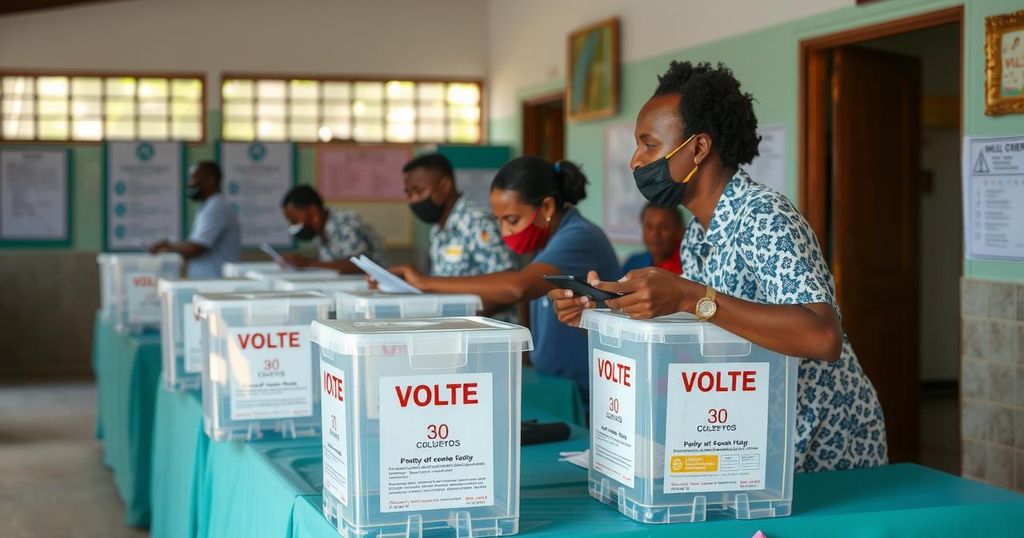Comoros Set for Parliamentary Elections Amidst Controversy and Allegations

Voters in Comoros are electing a new 33-seat parliament amidst allegations of electoral irregularities following President Azali Assoumani’s re-election last year. Approximately 338,000 registered voters can participate, with nearly 100 candidates contesting. Significant concerns arise regarding Assoumani’s consolidation of power and potential plans for his son to succeed him. Some opposition parties have called for a boycott, while others choose to participate to expose the government’s flaws. Election results are expected by Friday.
Voters in Comoros have commenced the electoral process to select representatives for the nation’s 33-seat parliament, following the re-election of President Azali Assoumani, a process that has been shadowed by allegations of widespread electoral irregularities. The ruling party officials have dismissed these accusations. Polling stations across the archipelago opened early on Sunday, with approximately 338,000 registered voters prepared to participate in the election, the first since January 2020.
The Supreme Court of Comoros has authorized nearly 100 candidates to vie for parliamentary seats. President Assoumani, who has maintained power since his coup in 1999 and subsequently won three elections, faces criticism from opponents accusing him of authoritarian practices. There are concerns regarding his possible intention to groom his eldest son, Nour El-Fath, as his successor by empowering him with significant responsibilities in coordinating government affairs.
While certain opposition groups, such as Juwa, led by former President Ahmed Abdallah Sambi—currently serving a life sentence—have advocated for a boycott of these elections, others have opted to participate, emphasizing the importance of revealing the regime’s weaknesses. Hamidou Karihila, a candidate from the opposition Hope of the Comoros party, stated, “The Azali regime is weakened … by participating in these elections we are contributing to further exposing the flaws in its system and accelerating its inevitable fall.” The results of the election are anticipated by Friday.
The upcoming parliamentary election in Comoros marks a significant event, considering the political turbulence that has surrounded President Azali Assoumani’s administration. Assoumani has been a dominant figure in Comorian politics since seizing power through a coup in 1999. Following his recent re-election amidst allegations of electoral misconduct, opposition parties are now striving to convey dissent, even as some have opted to boycott the elections altogether. Their participation highlights a controversial divide in political strategy and perspectives on reform. The empowerment of President Assoumani’s son has raised further alarms about potential nepotism and authoritarian rule, as various factions within the opposition aim to challenge the incumbent’s grip on power. The stakes are particularly high given that Assoumani has been perceived by many as consolidating power and stifling dissent. This election represents not only the pursuit of parliament’s makeup but also a critical commentary on governance in Comoros.
The parliamentary elections in Comoros reflect deep-seated political divisions and ongoing challenges regarding governance and electoral integrity. As voters head to the polls amidst allegations of corruption and authoritarianism, the outcome is likely to have significant implications for the nation’s future political landscape. Moreover, the active participation of opposition factions signifies both a challenge to the current regime and a platform for voicing concerns over potential dynastic politics. Observers await election results, which are expected by Friday, to gauge the impact of these complex dynamics on Comoros’ political trajectory.
Original Source: www.merimbulanewsweekly.com.au






